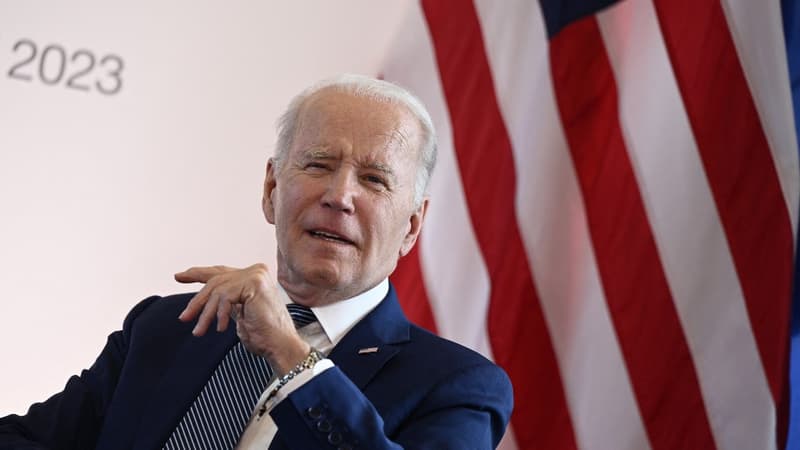Avoiding a default by the United States at all costs: it is on this principle that US President Joe Biden and the leader of the Republicans Kevin McCarthy finally found themselves, who spoke on Saturday, May 27, on an “agreement in principle “. This process, however, should have been only a formality if the opposition had not been so strong in the country.
One more step remains: the validation of this commitment by Congress, and this before June 5, the theoretical date on which the country will be in default. The House of Representatives, in which the conservatives have a fragile majority, will vote on Wednesday, followed by the Senate, controlled by a narrow margin by the Democrats.
The Democratic president said that the agreement with the conservatives was “good news, because it avoids what would have been a catastrophic default.”
Republican chief Kevin McCarthy said for his part in a brief speech that the budget compromise found, of which he gave no details, was “completely worthy of the American people.” The conservative leader limited himself to welcoming the “historic reductions” in public spending provided for in the agreement, according to him, which was the main claim of the Republicans.
Public debt ceiling raised for two years
According to a source familiar with the negotiations, the agreement reached between the Executive and the opposition raises the ceiling for the public debt of the United States for two years, that is, until after the 2024 presidential elections.
There are not the deep cuts that the Republicans want, although non-defense spending will remain largely unchanged next year and only increase nominally in 2025, the same source said.
New rules will also apply to access some federal aid programs, but the source clarified that the agreement protects the Inflation Reduction Act and the student debt relief plan, signed by Mr. Biden.
Without raising that limit, the world’s leading power risked being in default on June 5, unable to meet its financial commitments: salaries, pensions or repayments to its creditors. Like almost all major economies, the United States lives on credit. But unlike other developed countries, the United States regularly faces a legal constraint: the debt ceiling, the maximum amount the United States can borrow, which must be formally raised by Congress.
This legislative procedure is normally part of the routine; but the Republicans, in a majority in the House of Representatives since January, have turned it into an instrument of political pressure. By refusing to issue the so-called “blank check” to the Democratic president, they conditioned any increase in this ceiling, currently set at $31.4 trillion, on budget cuts. Joe Biden, his re-election candidate, has long refused to come to the negotiating table, accusing the opposition of holding the US economy “hostage” by demanding such cuts.
“Under surveillance”
After several White House meetings between the two men, the teams of the president and the Republican “speaker” finally engaged in endless negotiating sessions, all of which were widely discussed throughout Washington.
The agreement in principle found on Saturday night gives some air to the financial markets, which have never really panicked but this paralysis was beginning to get impatient. In fact, it is very common for last-minute compromises to be reached in these types of files. The Fitch rating agency had placed the AAA rating of the United States “on watch” on Thursday, estimating that the lack of agreement “would constitute a negative signal in terms of governance.”
The world economy, already gripped by “great uncertainty”, could have “do without” these tense negotiations, the director of the International Monetary Fund, Kristalina Georgieva, had also criticized.
Some progressives within the Democratic Party, as well as elected members of the Republican Party, have threatened not to ratify or delay for as long as possible a text that would make too many concessions to the opposing camp. Republican elected officials in the House of Representatives, with a Republican majority, have already announced their opposition to the text, such as Lauren Boebert, who tweeted that according to her, “our voters deserve better than that, they can count me as a NO.” to the agreement”.
Source: BFM TV


